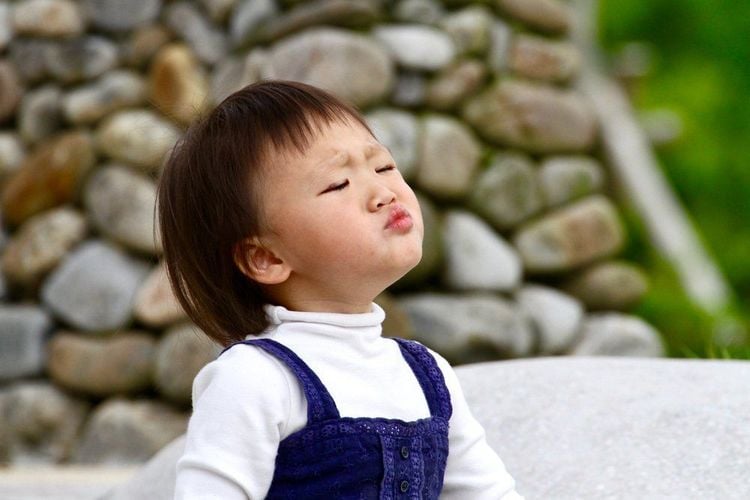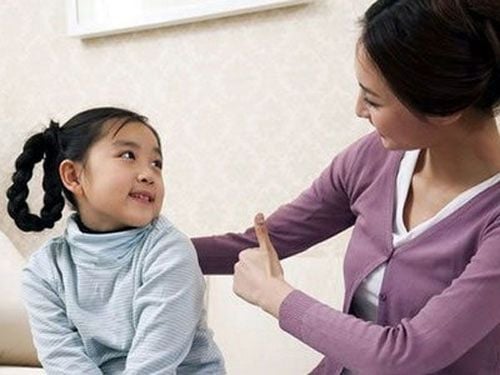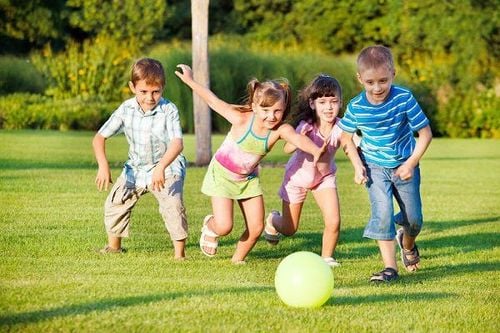This is an automatically translated article.
Most parents don't have too much trouble reminding their children of basic etiquette. But when someone else's child is disrespectful, things become more difficult. How should you react to rudeness? What if another child's parents were there but didn't teach them? When you see a child disrespecting others, what should you do?Here are some common situations you will encounter and how to handle them wisely.
1. Take a step back
When another child insults your child, it's easy to rush to your child's defense. But first, take a moment to fully appreciate the situation. See how your child deals with insults? Is your child extremely upset, or does he seem to be striding and letting things go?Alex J. Packer, psychologist and author of How Rude! series of books for children and teens, says "When you step in before the kids need you, you're sending the message that the kids need someone else to handle their problems. ". So, take a minute to observe if your child responds in a way that you think is more appropriate than hitting or yelling in response. If so, take the child aside, and then praise the child's behavior. Mention specifically what you like about the child's actions: "I thought it was great that you told your friends not to call you 'stupid' and not to say anything malicious."
The same wait-and-see rule applies when you are a witness to another child's disrespect. Maybe a kid kicks a ball past another kid's sandcastle on the beach, or a kid in a restaurant is racing around the tables while his parents aren't paying attention.
If your child is there, you don't want them to think this behavior is right. But many times, you won't be able to stop what's happening. Betsy Brown Braun, a child development expert and author of Just Tell Me What to Say: Sensible Tips and Scripts for Confused Parents, says, “You're not responsible for the entire world. gender. But you can use almost anything as a teaching moment.”
If no one else seems to be hurt, simply explain to your child why you don't accept rude behavior. For example, when you take your child on a train, and your grandmother sees a boy resting his foot on a chair, you can say to your child, "That kid over there is resting his foot on the train seat. Mommy and Daddy definitely don't like sitting in the next seat and getting all dirty."
Or maybe you're taking some kids out and one of them says something nasty to you. , try to put your hurt feelings aside and look at the situation as calmly as possible.

Nếu điều trẻ vi phạm là nhẹ, cần thực hiện một sự sửa chữa đơn giản
Sometimes the other child may not even be aware that what he or she says hurts someone else. Children can say whatever they want about food at home and don't know that complaining about what you're served for dinner is rude.
Here comes a non-judgmental explanation: "Mommy was heartbroken when you told me her casserole wasn't good". Follow up with a request not to repeat the offense: "You can't eat anything you don't like, but please don't complain about the food I gave you."

Đôi khi đứa trẻ kia thậm chí có thể không nhận thức được rằng những gì mình nói lại gây tổn thương cho người khác
2. Step in when things get out of control
If the situation is escalating, someone will have to intervene, especially if a child under the age of 4 is involved. If the offending child's parents are nearby, get them involved in solving the problem.Braun says: “Don't tell her her kids shouldn't do this or that, because that tells her she's a bad parent.” Instead, tell her what happened and wait and see how she reacts.
First, describe what happened as neutrally as possible: "Bobby called Joe a 'big-headed idiot'. I just thought I should let you know." Then wait and see what she says or does. In most cases, parents will talk to their children about what they said, and your job is done.
However, some parents automatically get defensive when you say their child misbehaves. If this happens, it's best to try to control your angry response and simply repeat neutrally, "I think you'd like to know. If you can, you might want to get your child out of the way. this situation.”
If the child's parents are not around and the situation calls for intervention, say one child is bullying another child who is not in your group, another helpful way is to take advantage of opportunities. authorities: such as a cinema operator or a presenter at a restaurant
If all else fails, simply tell the other child that what he did was inappropriate and why why: "When you call someone 'stupid,' it hurts their feelings." Overall, an adult presence is enough to make even the most stubborn child down. Be less rude
But unless you are asked to act as the guardian or carer of another child, you should not discipline the child with leave or other punishment. love In an unacceptable situation and with another adult in charge, take your child away instead of trying to punish the other person.

Nếu tình huống không thể chấp nhận được và có một người lớn khác phụ trách, hãy đưa con bạn rời đi thay vì cố gắng trừng phạt người khác
For children to be healthy and develop well, it is necessary to have a nutritious diet in terms of quantity and quality balance. If children are not provided with adequate and balanced nutrients, it will lead to diseases of excess or lack of nutrients, which adversely affect the comprehensive development of children in terms of physical, mental and motor skills.
Parents should supplement their children with supportive products containing lysine, essential micro-minerals and vitamins such as zinc, chromium, selenium, and B vitamins to help fully meet their child's nutritional needs. At the same time, these essential vitamins also support digestion, enhance nutrient absorption, help improve anorexia, and help children eat well.
Parents can learn more:
Signs of zinc deficiency in children
Micronutrient deficiency and failure to gain weight in children
Please regularly visit Vinmec.com website and update useful information to take care of your child. Take care of the baby and the whole family.
Reference source: babycenter.com













